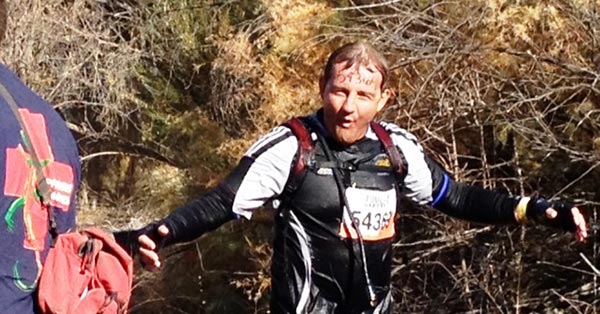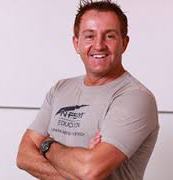
Fabio Comana: "You don't have to go to extremes to see improvement in your health and fitness."
INSTRUCTOR PROFILE, TEN QUESTIONS:
Born and raised in the southern African nation of Zambia, Fabio Comana found his life’s calling in sports — first as an international-caliber rugby player and later, as a fitness and exercise expert.
Comana has taught UC San Diego Extension courses for nearly 10 years, augmenting his role as a San Diego State University faculty member, where he also coached men’s rugby for several seasons.
Rather than “get-in-shape” classes, his courses are geared toward those who aspire to be professional exercise trainers.
Previously an exercise physiologist with the San Diego-based American Council on Exercise, he also serves as academic coordinator for Extension’s Professional Certificate program in Fitness Instruction and Exercise Science.
Comana currently teaches the following Extension courses:
1) What exactly is the physiology of exercise?
It’s a curriculum that’s designed to prepare the majority of our students for a transition into the health and fitness field. So the word “physiology” simply means learning about what happens to the human body under the acute stress of exercise. Hopefully, it’s positive stress.
2) What made you choose fitness as a career?
I’ve been an athlete all my life. My parents first put me into competitive sports when I was 5. Members of my family, we all competed in sports and for me, it was rugby. I always wanted to find ways to improve my own performance, so I gravitated toward my conditioning and my nutrition. Along the way, I discovered that I really like helping other people. Eventually, it became my calling.
3) What’s the biggest lesson you hope exercise trainers convey to their clients?
 A lot of times, people think they have to do all these extreme, really crazy workouts, to achieve some kind of desirable outcome. That’s simply unrealistic because a) they’ll probably not keep up with the program, and b) you don’t have to go to extremes to see improvement in your health and fitness. You don’t have to kill yourself. Moderation is the key.
A lot of times, people think they have to do all these extreme, really crazy workouts, to achieve some kind of desirable outcome. That’s simply unrealistic because a) they’ll probably not keep up with the program, and b) you don’t have to go to extremes to see improvement in your health and fitness. You don’t have to kill yourself. Moderation is the key.
"Ask, listen, understand, and respond"
4) What’s your mantra as an instructor?
I like to use these four key words: Ask, listen, understand, and respond. Much like in the medical field, too often we keep telling people what they need to do, instead of listening to what their personal goals are.
5) What’s your personal workout routine?
People say to me, wow, you must go the gym five or six times a week. But I’ll probably do a traditional workout for, say, 45 minutes, maybe four times a week at the most. What I emphasize is standing as much as I can – instead of sitting. I’m actually standing right now while I’m talking on the phone.
6) How about a few more small tips on office fitness?
Every time the phone rings, create a tiny habit: Tell yourself to stand up for at least five minutes. Or do a quick 10-minute stretching workout. I try to squeeze in little exercises, fit in a few little moments wherever and whenever I can throughout the day.
7) How would do advise someone to deal with the “guilt” of not being able to exercise as often as they’d prefer?
All of our lives are already so crazy. I believe exercise should be something you desire to do, not that you feel obligated to do. I’d love to spend 90 minutes in the gym every day, but I don’t have that kind of time. So I prioritize. Four times a week is plenty for me.
8) What makes a great physical fitness trainer?
Someone who can listen and be responsive to what a person desires.
9) What’s the most unhealthy food that you crave, your guilty pleasure?
Mine is salty foods like French fries and potato chips. But I don’t feel guilty about eating them as long as it’s in moderation.
10) So what’s worse for us — salt, fat or sugar?
For the longest time, we thought it was fat. But a lot of the new research coming out now points to sugar as the biggest culprit. When you look at the addiction we have for the sugar that’s in all of our foods, it’s totally ridiculous.